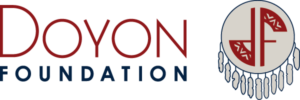Towards documentation and continuation of endangered languages
The Institute of Collaborative Language Research (CoLang) has gathered since 20th June, 2016, at the University of Alaska Fairbanks (UAF). In attendance are language activists, learners, linguists, speakers, students, teachers, elders, wiki bloggers, archivists, and publishers hailing from the Miyako/Ryukyuan, Mohawk, Tlingit, Potawatomi, Tunica/Biloxi, Tututni, Ahtna, Hän, Navajo/Dineì, Dene, Denaakk’e, UnangamTunuu, Blackfoot/Blackfeet, Wendat, Karuk, Catalan, Kristang, Chickasaw, Seminole, Creek, and Ekegusiilanguage communities, among others. They chose the slogan “Alangska, pretty co-ol!” for CoLang 2016.
Over one hundred fifty participants traveled from as far as Australia, New Zealand, Pakistan, Japan, Singapore, Croatia, Netherlands, Nigeria, Kenya, Malaysia, and Spain. Canada and the USA had the largest representation.
The fifth biennial Institute of language documentation and revitalization gathered on the traditional territories of Ten Khwt’ana in order to collaborate across different areas of expertise and experience, sharing strategies and projects for language documentation.
CoLang meets every other summer in even-numbered years. The Institute consists of two weeks ofworkshops followed by a 3 or 4 week long language documentation practicum. http://www.alaska.edu/colang2016/
Previous Institutes were hosted by University of California Santa Barbara – 2008 (the Institute was then called InField), University of Oregon – 2010 ,University of Kansas – 2012 (where the present acronym CoLang was adopted), and the University of Texas, Arlington in 2014.
The 2016 Institute is generously funded by the National Science Foundation (NSF), the Linguistic Society of America (LSA), the UAF Alaska Native Languages Center (ANLC), the Endangered Language Fund (ELF), the Alaska Humanities Forum (AHF), UAF Summer Sessions, UAF College of Liberal Arts, and the University of Alaska Southeast.
Among Key speakers who addressed the gathering were Robert Charlie of Minto and Tanacross; EvonPeter, UAF Vice Chancellor for Rural Community and Native Education; Dr. Larry Kaplan, Director of the UAF Alaska Native Language Center, who welcomed participants to the university; and Linguistic Society of America President Dr. Alice Harris. Dr. Colleen Fitzgerald, Program Director for the Documenting Endangered Languages initiative of the National Science Foundation, and CoLang 2014 Director, was a special guest.
The goals and principles of the Institute are to provide training in documentation, maintenance, revitalization and advocacy for endangered languages, facilitating ethical collaborations between academic and community linguists. CoLang fosters effective practices for in situ language research and resource creation and the maintenance of language diversity, by promoting the creation of lasting resources on under-described languages and assisting community-based language activists in skills development.
These goals are guided by principles of collaborative learning, teaching, research, inclusivity, outreach and advocacy. Participants, and instructors of multidisciplinary, indigenous, and non-indigenous expertise learn together and create accessibility by removing barriers to language documentation. The Institute helps to build networks that connect academic and community linguists to foster synergistic training and dissemination of the products of language documentation. The Institute’s advocacy is geared towards supporting language initiatives and minority language communities around the world.
The initial two-week workshops start or deepen understanding of collaborative language documentation processes and tools, including their linguistic, ethical, practical, and technical dimensions. The subsequent three-week practicum coursesapply the linguistic, ethical, practical, and technical skills gained in the workshops in a guided apprenticeship with native-speaker consultants and an instructor.
The public events brought to the Fairbanks community (sponsored by the Alaska Humanities Forum) included film screenings of Language Matters, Rising Voices, and Khonsay: a multilingual poem, and inspiring talks showcasing various models of language documentation projects in action; Fieldwork in the Caucasus, Language Revitalization and the Arts, Creek/Seminole in Action, Intergenerational Approach to the DelineMapping Project. Other talks included Children in Language Documentation and Revitalization, Teaching Denaakk’e by Long Distance, Conversation for Language Documentation & Revitalization and Refugee Language Documentation.
This Institute’s special foci on Archiving and Alaskan languages encouraged attendance from the broader Alaskan area.
Long time participants showcased their achievements since inception of Institute, with Mr. Kennedy Bosireof Kenya demonstrating how his community gained a dictionary, thanks to the training he has undergone with CoLang. http://ekegusiiencyclopedia.com/
Drs. Siri Tuttle and Alice Taff, of University of Alaska, are the 2016 directors, with Drs. Larry Kaplan, Anna Berge and Gary Holton, all of whom were assisted by Florie Wilcoxson, Yoko Kugo, and Kraig Smyth. The workshops run through July 1st while the practica end on July 27, 2016.
2016 participants noted that while the world was watching the UEFA Cup, an international team at CoLang was scoring goals toward language documentation and continuity in order to help turn the rate at which world languages fall silent every few weeks.
Social media: #colang2016 #languagewarriors#letourgrandparentslanguagelive #rebelsforlanguage
